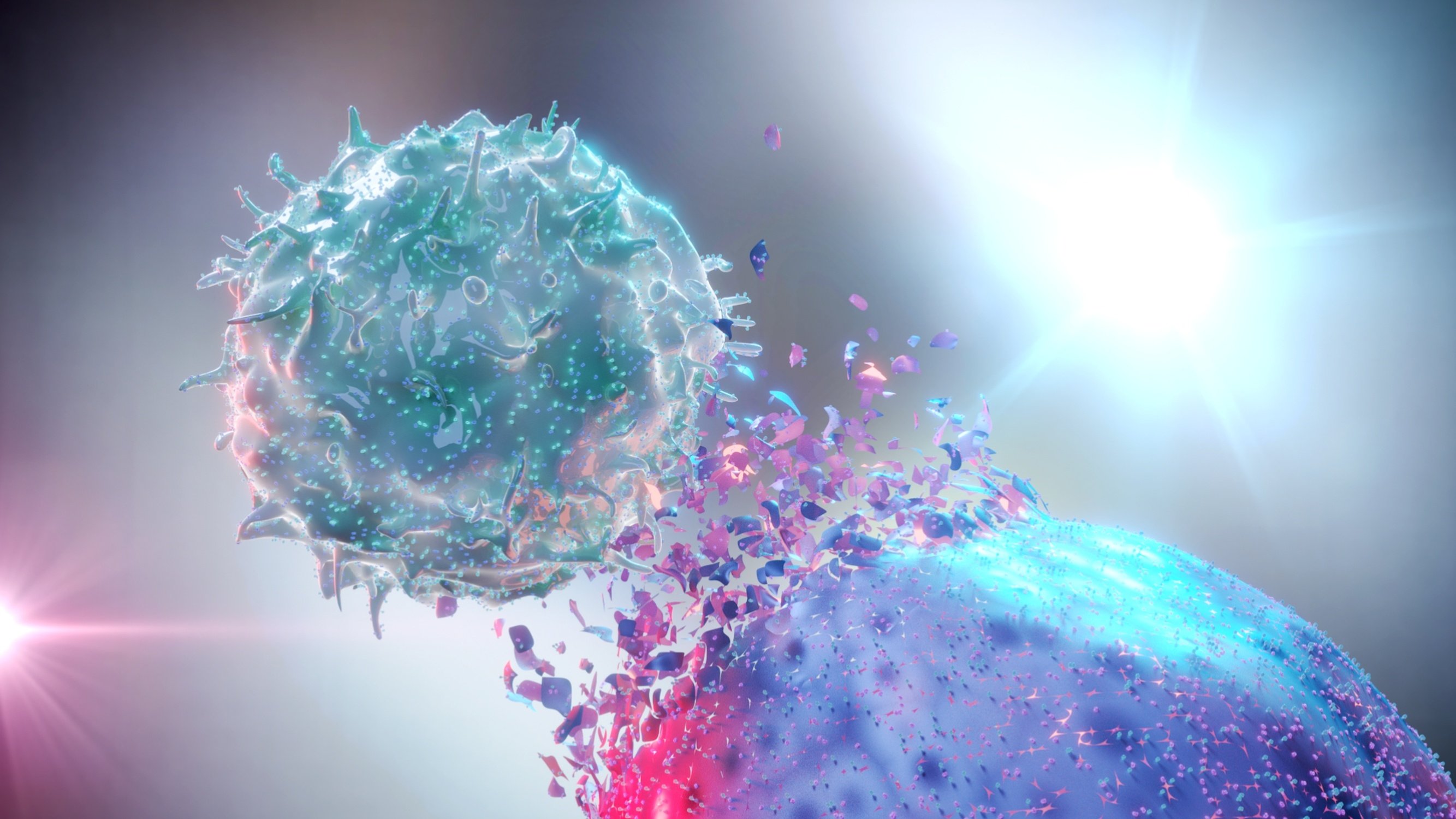
Natural Killer (NK) cells are granular lymphocytes involved in the innate immune response to viruses and tumors. NK cells have gathered significant attention in the field of cancer immunotherapy as a potential allogeneic “off-the-shelf” therapeutic because they can:
-
>> Kill tumor cells without antigen expression
>> Kill multiple cells, potentially reducing dose
>> Reduce risk of cytokine release syndrome
>> Don’t have the same HLA compatibility issues as T cells
Activation and Inhibition of Natural Killer Cells
Important to the innate immune system, natural killer cells (or large granular lymphocytes) kill diseased cells. They express a range of activating and inhibitory receptors that regulate antitumor activity.
Activating receptors
- NKG2D
- CD2
- NCR
- CD16
Inhibitory receptors
- KIRs
- CD94
- ILT/LIR
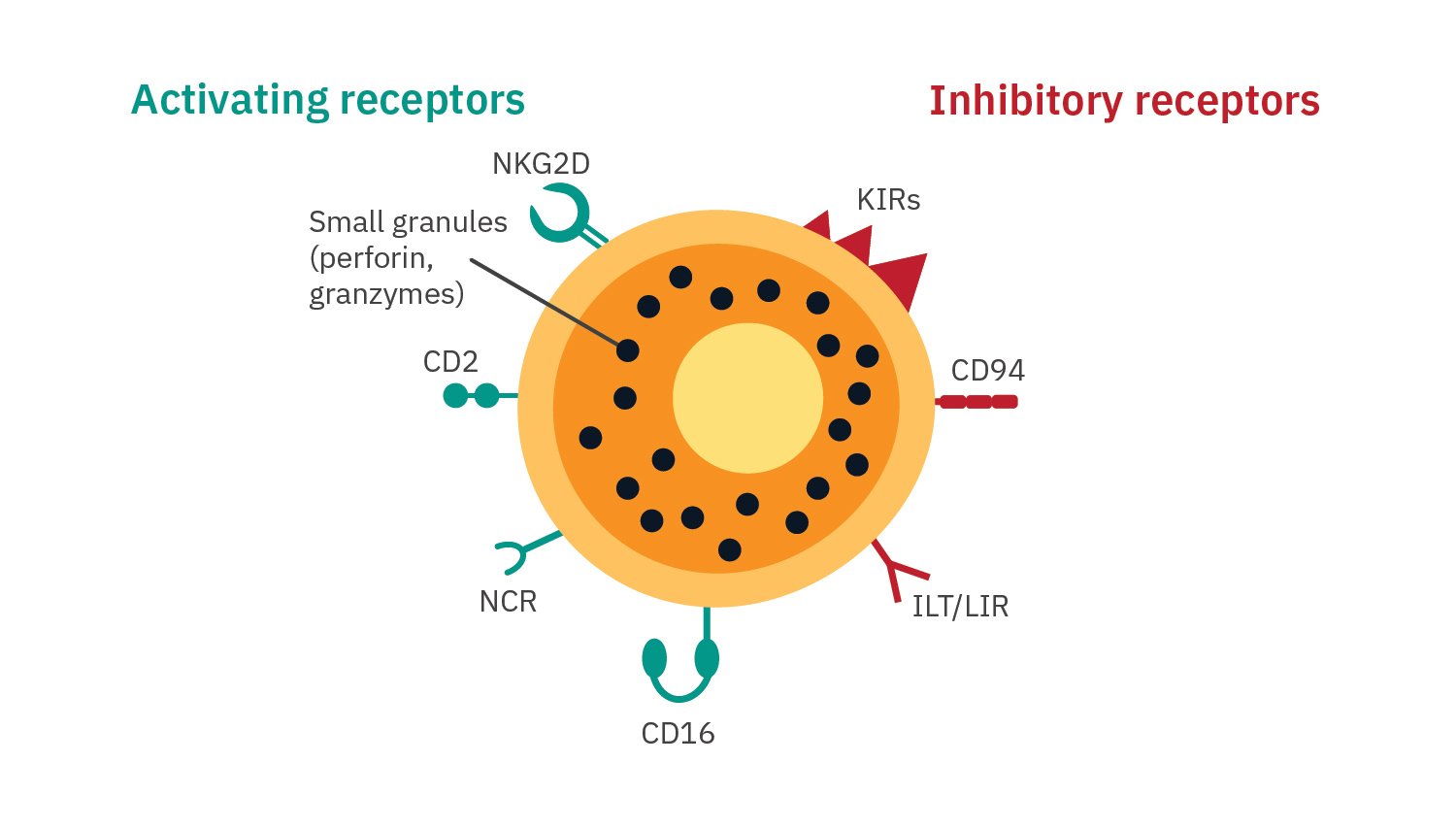
NK Cell Killing Assays
Purpose: To demonstrate antibody-dependent cellular cytotoxicity using NK cells. NK cells kill cells that have antibodies bound to their surface, making them useful for assessing antibody-based therapies.
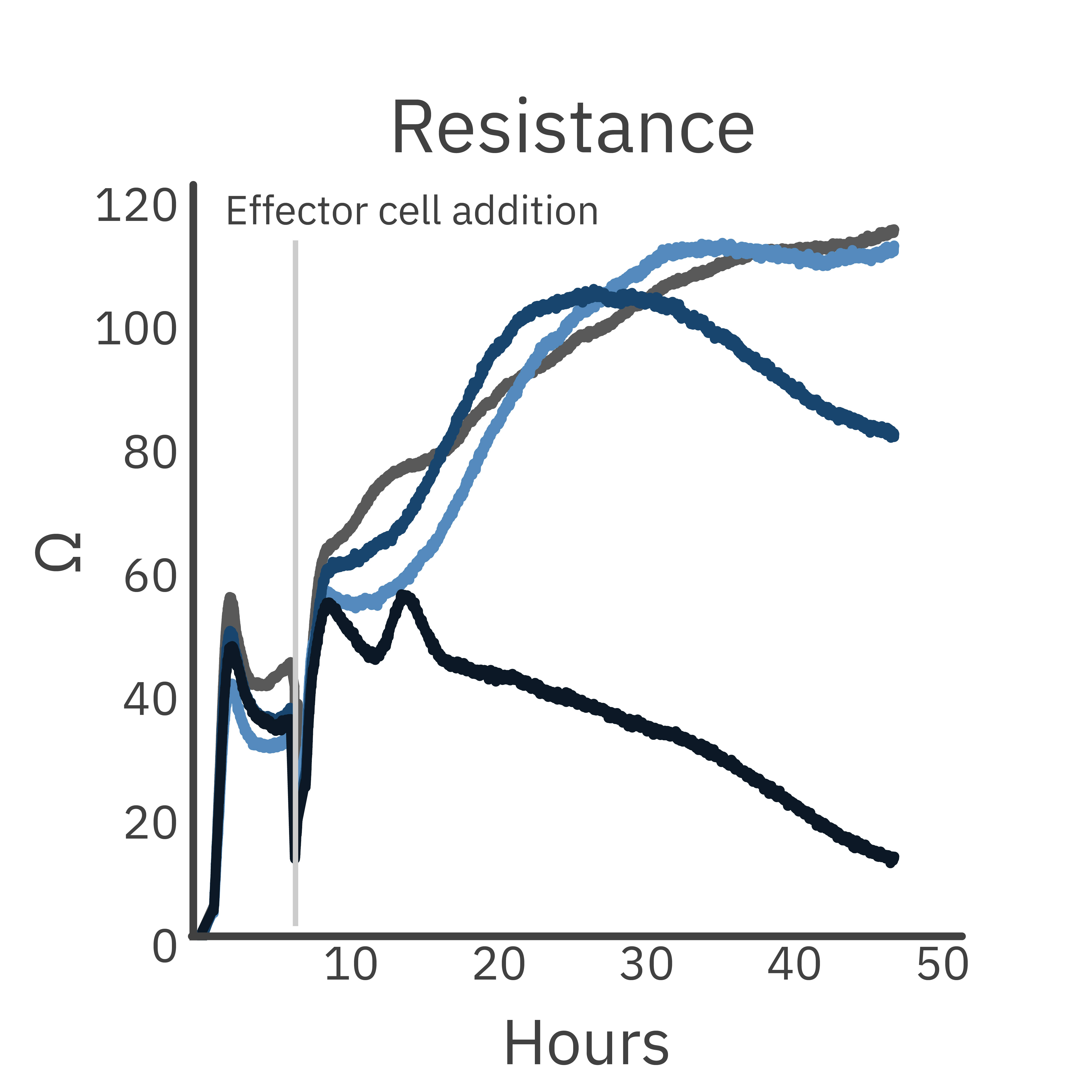
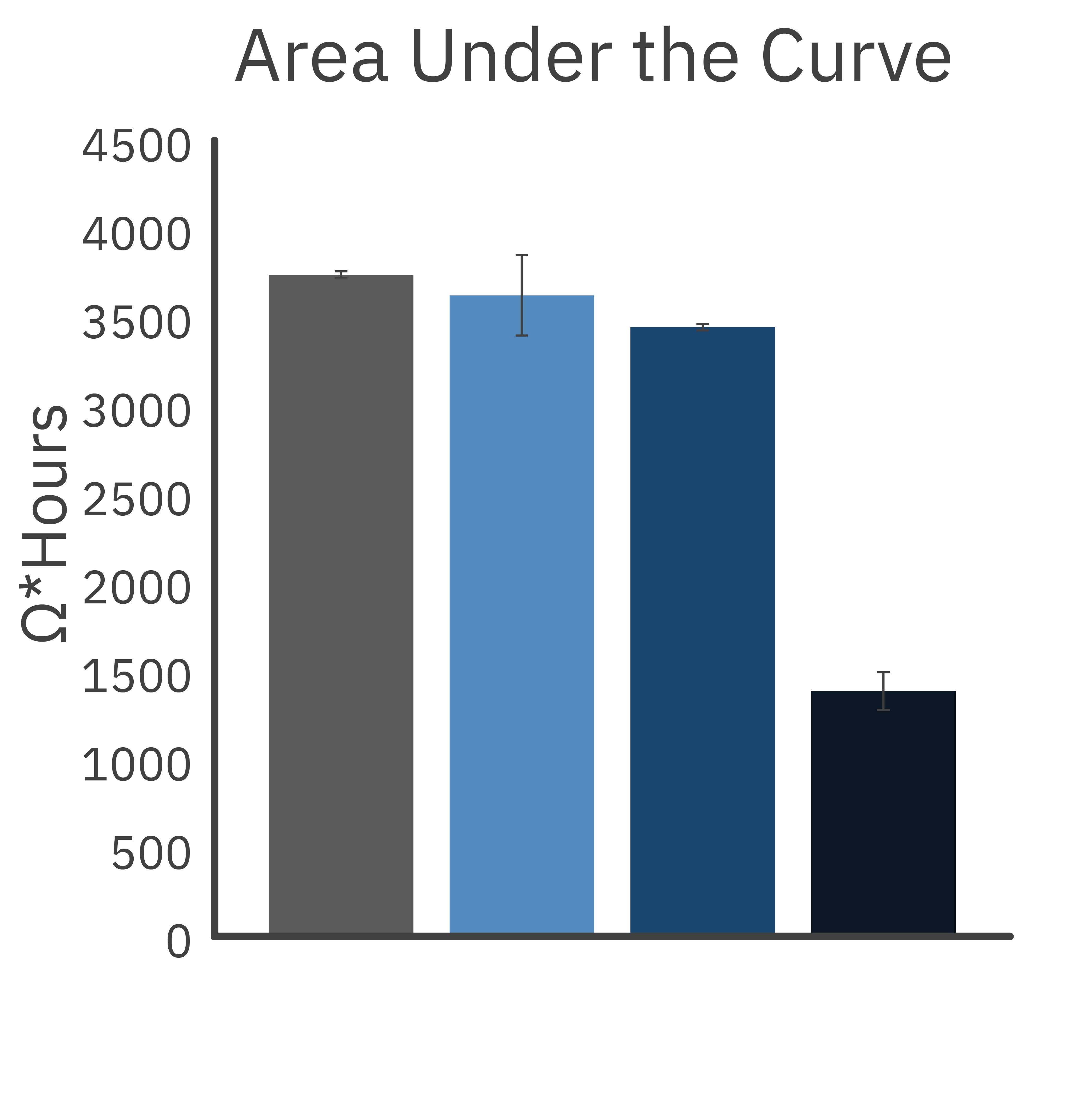
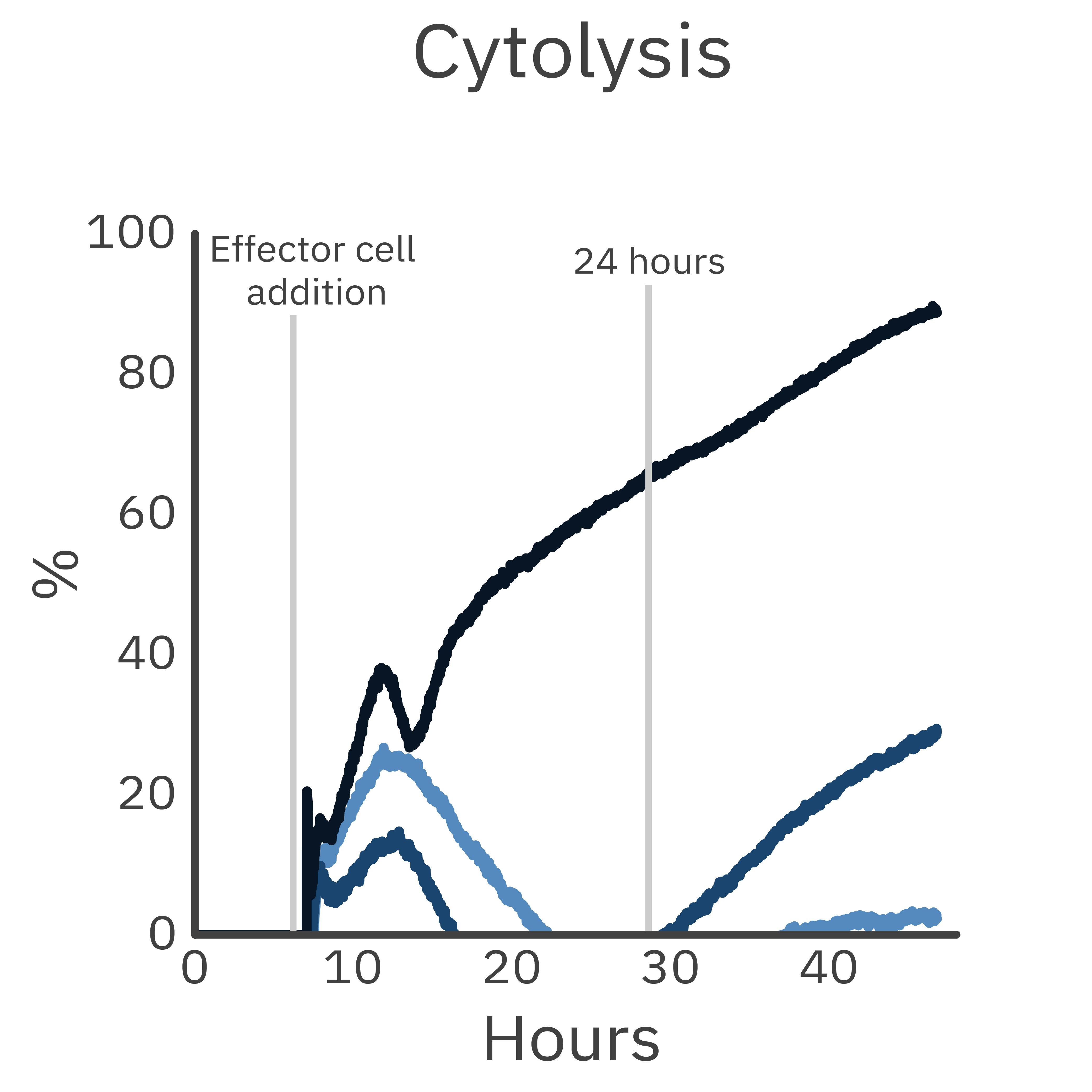
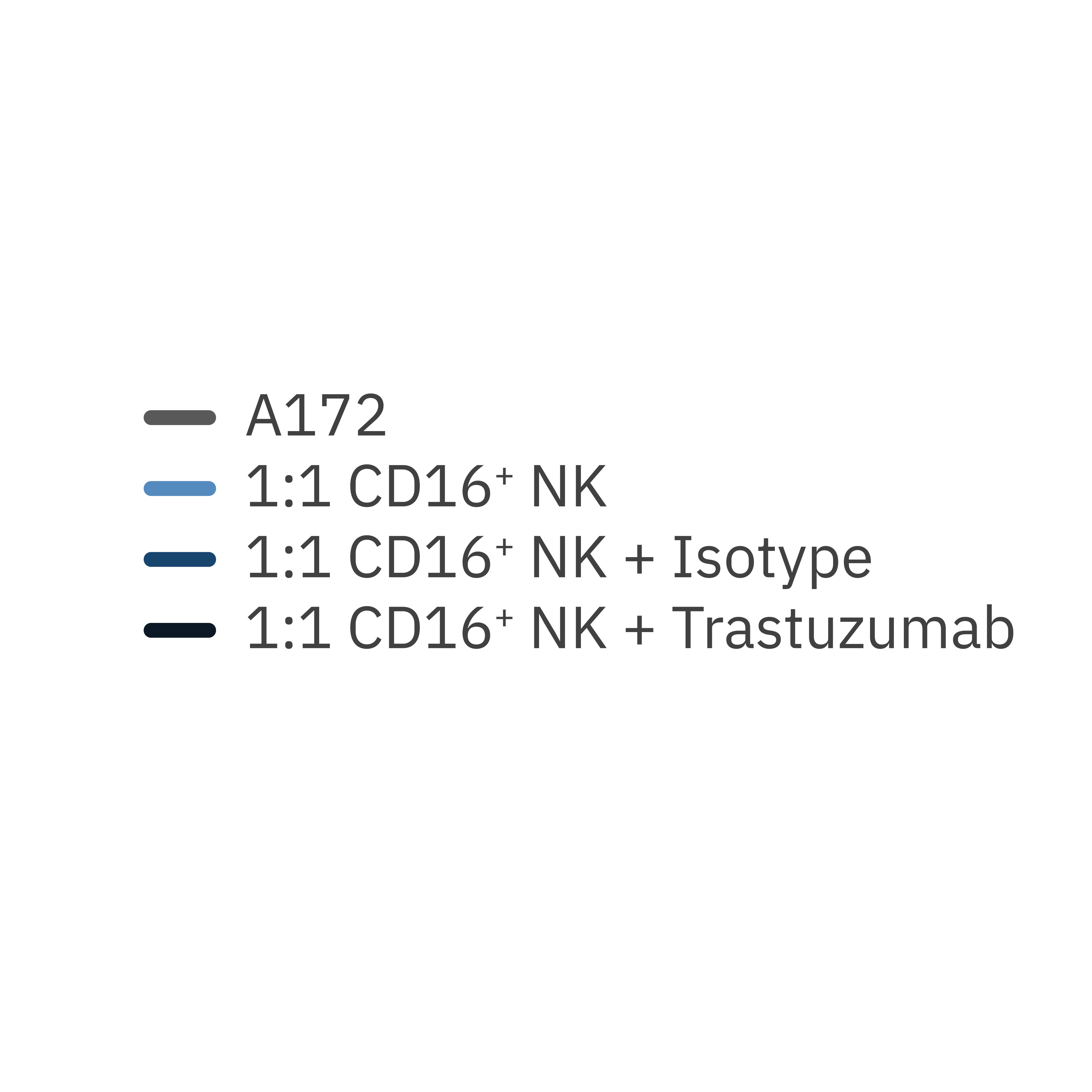
Cancer cells were treated with trastuzumab, a HER2-targeting monoclonal antibody, and then co-cultured with NK cells. NK-mediated killing of target cells was assessed using the Maestro Z platform.
Result: NK cell-mediated killing was greatly enhanced in the presence of trastuzumab.
Purpose: To demonstrate enhanced NK-mediated targeting and cytotoxicity. Like CAR T cell development, antigen selection plays a crucial role in therapeutic development of CAR NKs.
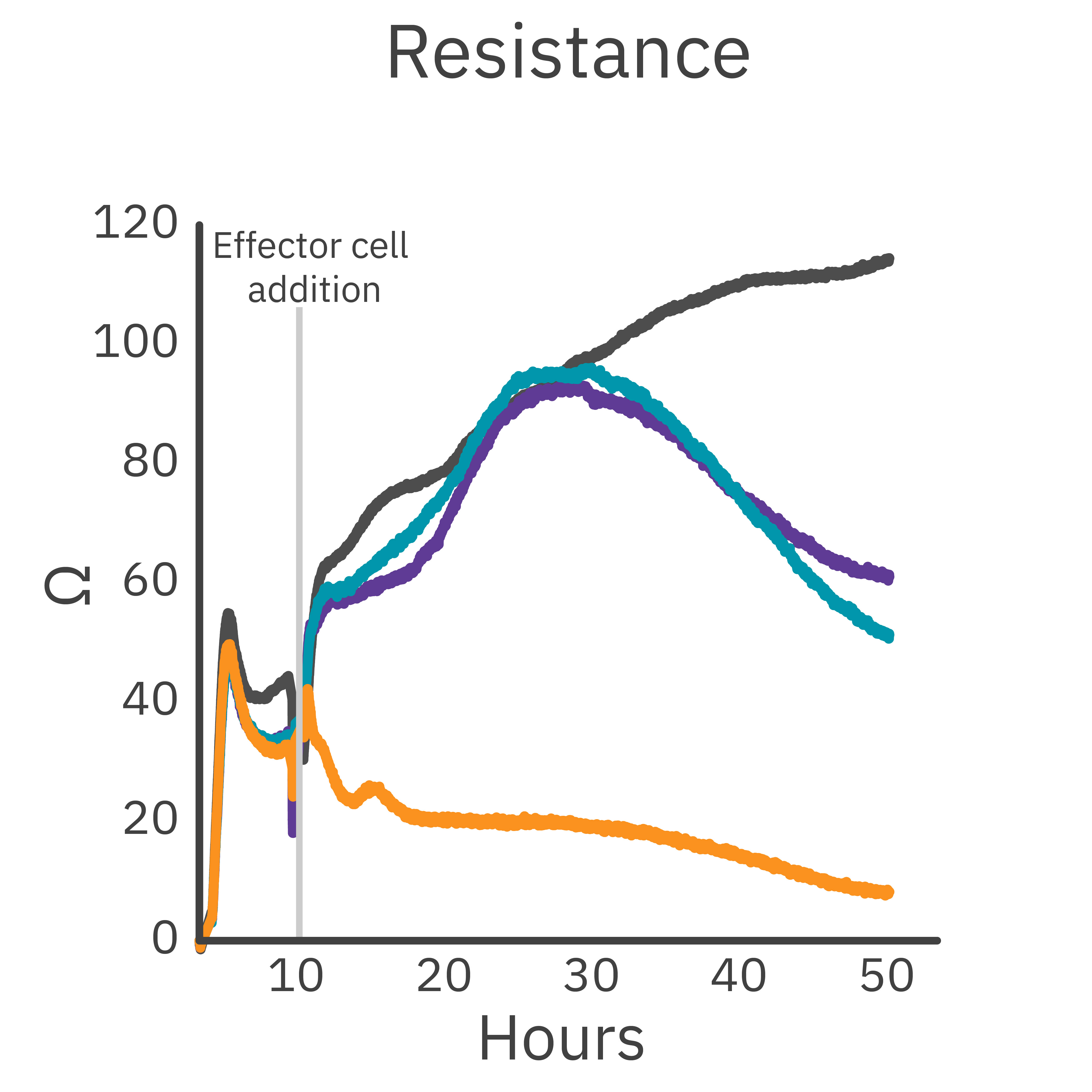
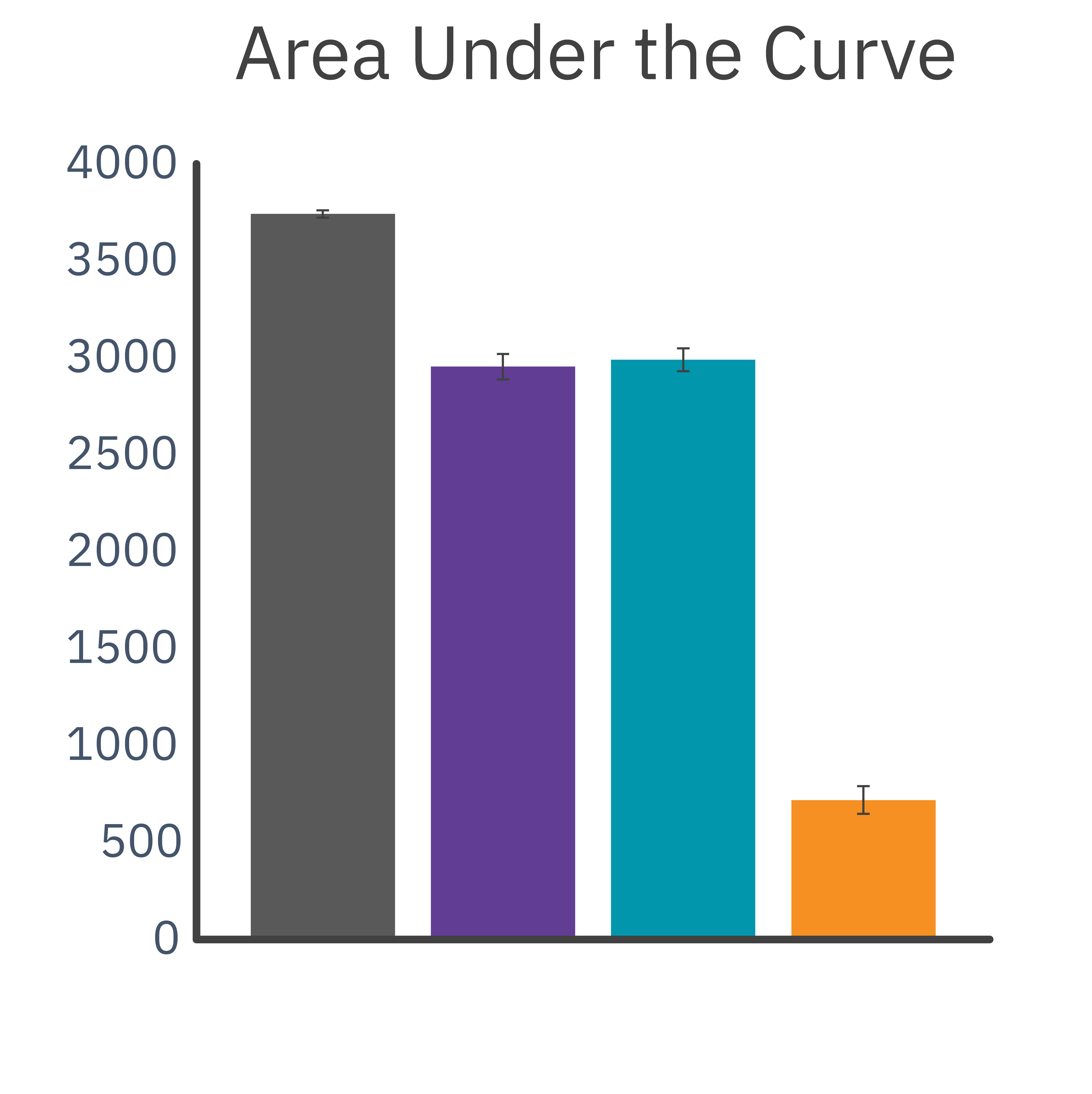
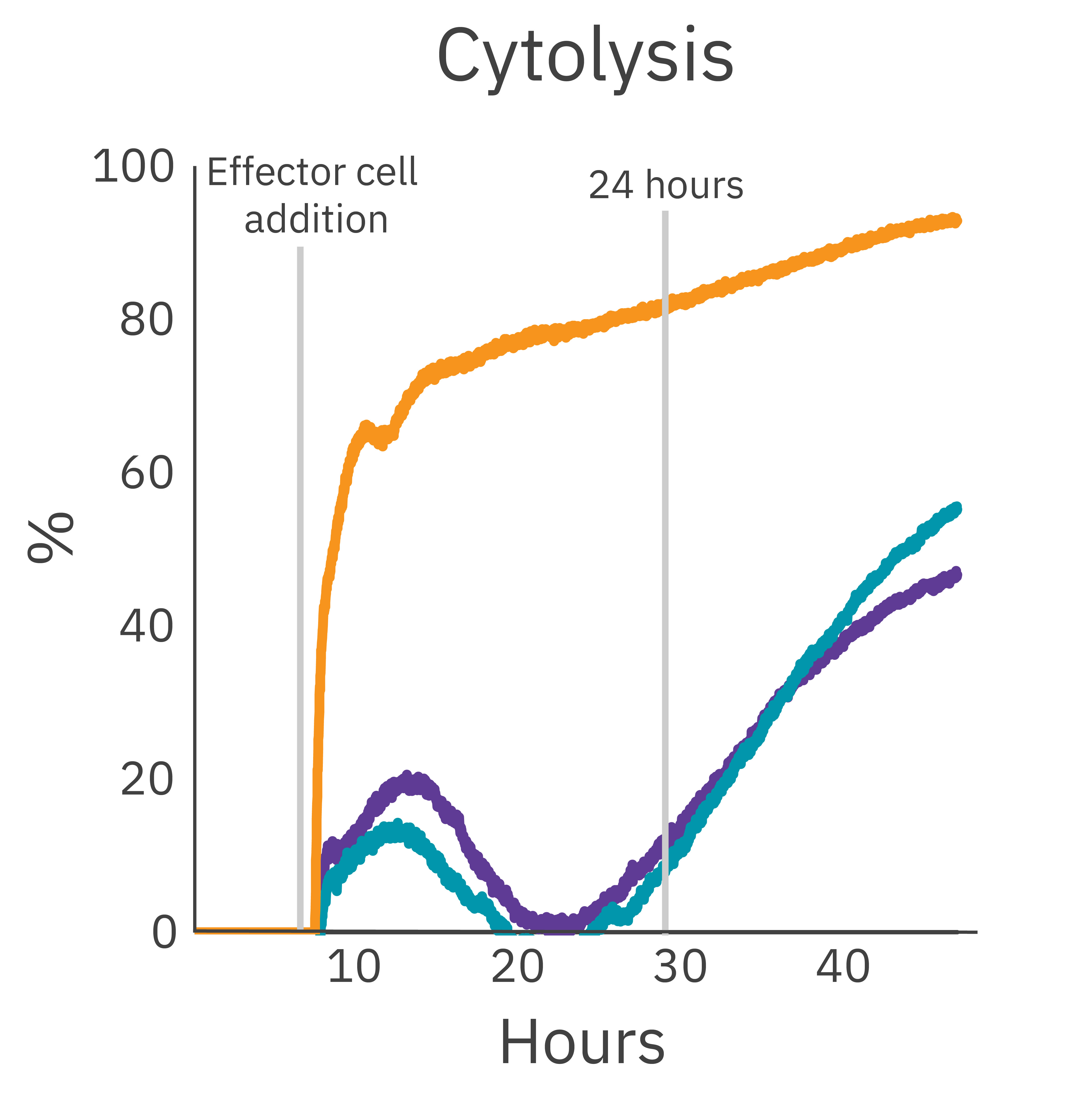
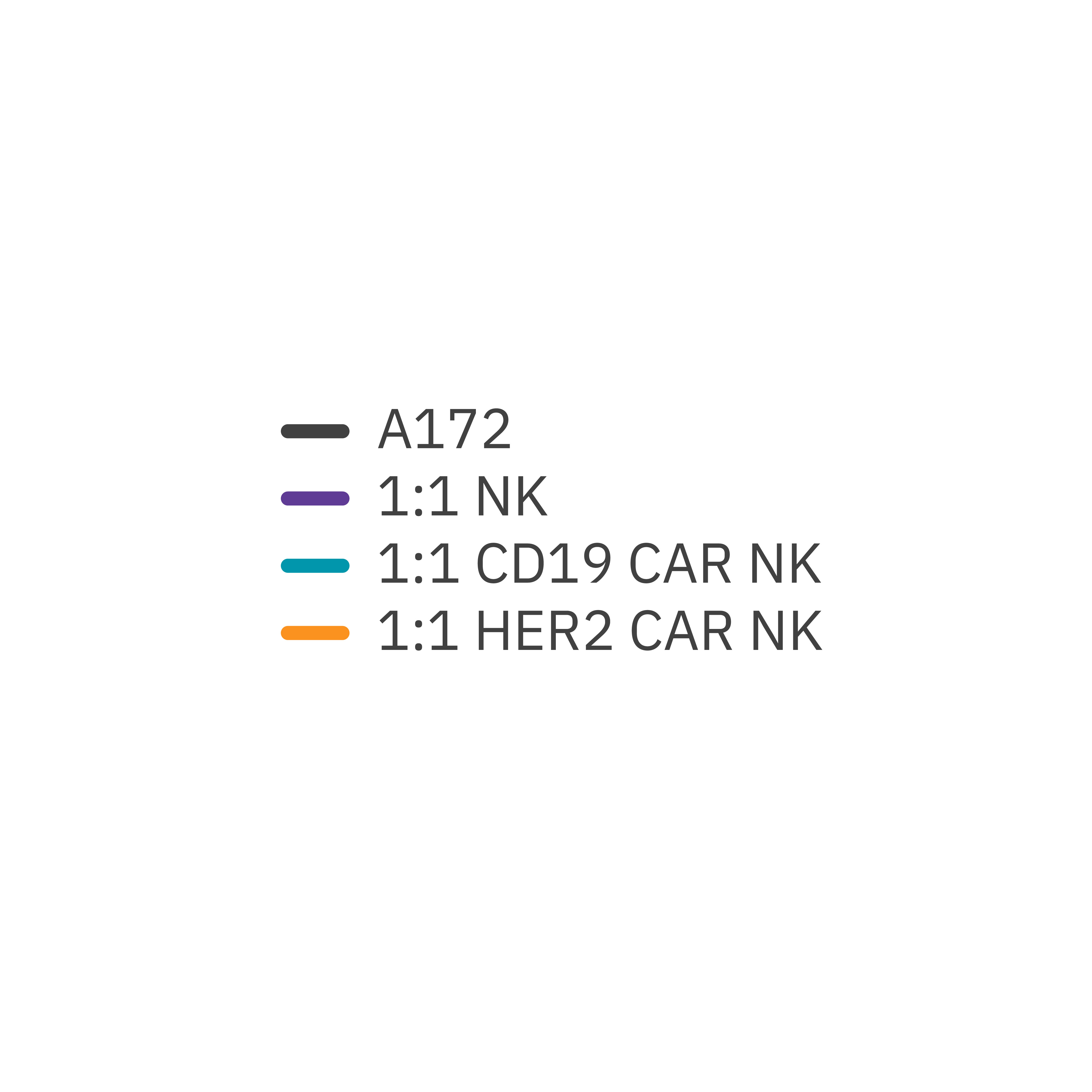
NK cells transduced with chimeric antigen receptor (CAR) constructs targeting HER2 or CD19 were added to HER2-expressing cancer cells. CAR NK-mediated cytotoxicity was measured using the Maestro Z platform.
Result: HER2-targeted CAR NK cells exhibited higher potency than CD19-targeted or non-transduced NK cells. The difference in cytolysis between non-transduced and HER2 CAR NK cells demonstrates that antigen recognition and specificity is an important determinant for CAR NK-cell potency.


